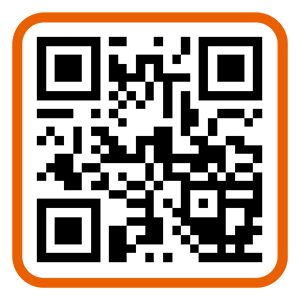Unit 1 How can we become good learners?
Section A
1. textbook ['tekstb?k] n.教科书;课本
text课文+book书=textbook
textbook cn. pl. textbooks
◆read the textbook 读课本
He just hid behind his textbook.
他就躲在他的课本后面。
2.conversation [?k?nv?'se??n]
[?kɑ:nv?'se??n] n.交谈;谈话
◆ make a conversation 编对话
◆ listen to conversations 听会话
◆ have/hold conversations with
与…谈话
◆have a talk with sb.=talk with/to sb.
与…交谈
◆ communicate with sb.
=have a communication with sb.
与…交流/沟通
3. aloud [?'la?d] adv.大声地;出声地
【辨析】aloud,loud,loudly
aloud, loudly用作副词;loud既可作副
词,也可作形容词。
① aloud adv.
◆ aloud与read, think连用时,表示“出
声地”
read aloud 朗读
read the text aloud 朗读课文
think aloud自言自语地说
◆置于call,shout,cry之后,表示“大声地”。
call/shout/cry aloud
She called aloud for help.
她大声呼救。
②?loud adj. 大声地
The music is too loud.
这音乐声音太大了。
◆in a loud voice 大声地
in a low voice 低声地,小声地
Tom is speaking in a loud voice.
汤姆正大声说话。
?loud adv. 响亮地;高声地
◆loud置于 talk, speak, shout, laugh,
sing等动词之后,在口语中代替 loudly。
◆在动词后面loud比loudly更常用些。
他们的反义词是: quietly。
◆在用于比较级或最高级时,通常用loud
而不用loudly。
Could you please speak louder?
请你大点声讲话好吗?
Who laughed loudest?
谁笑得声音最大?
Facts speak louder than words.
事实胜于雄辩。
③loudly adv.高声地
含"喧闹"之意,常与knock, ring连用。
Suddenly the bell on the wall rang
loudly.
墙上的铃突然大声得响起来。
4. pronunciation [pr??n?nsi'e??n] n.发 音;读音
pronounce v.→pronunciation n.
( 去掉第二个o和e,在词尾加iation)
①pronounce vt. 发音
You pronounced the word well.
这个单词你发音很好。
How do you pronounce the word?
这个单词你怎么发音?
②pronunciation ◆un. 表示抽象意义的“发音”。
She has excellent pronunciation.
Her pronunciation is excellent.
她的发音好极了。
I'm afraid to answer questions
because of my poor pronunciation.
我不敢回答问题,因为我发音不好。
What about reading aloud to practice
pronunciation?
大声朗读练习发音怎么样?
He can't get the pronunciation right.
他发音不好。
◆cn. pl. pronunciations 表示发音的
不同形式或种类。
He speaks French with a good
pronunciation.
他法语发音很正确。
The word has two pronunciations.
Can you pronounce it?
这个词有两个读音。你发音吗?
5. sentence ['sent?ns] n.句子
cn. pl. sentences
◆make a complete sentence
造完整的句子
◆make sentences with/using…
用 …造句
Can you make sentences with/using
this word? 你能用这个词造句吗?
6. patient ['pe??nt] adj.有耐心的n.病人
① patient adj. 有耐心的
比较级、最高级:more/most patient
He's a very patient man.
他是个很有耐心的人。
◆be patient with sb.对某人有耐心
◆be patient to do 做某事有耐心
②patient cn. 病人 pl. patients
a patient=a sick person 病人
patients=sick persons/people 病人
The doctor is very patient with his
patients.
那位医生对病人十分耐心。
He is patient to look after patients.
他照顾病人很有耐心。
7. expression [?k'spre?n] n.表情,表达(方式);表示
express →expression
expression cn.& un.
◆words and expressions 词汇与短语
The expressions on their faces
helped me to get the meaning.
他们脸上的表情帮助我理解了他们的意
思。
There is no expression on her face.
她脸上毫无表情。
Please read with expression.
请带着表情读。
8. discover [d?'sk?v?(r)] v.发现;发觉
discover→discovery n.
discover vt.
◆discover+n./pron.
Who discovered America?
谁发现了美洲?
◆discover sb. to do
We discovered her to be a clever girl.
我们发现她是个聪明的女孩。
◆discover+特殊疑问词+to do
We haven't discovered how to
improve it.
我们还没发现如何改进它。
◆the discovery of… 的发现
England reported the discovery of
special water.
英国报道发现了特殊的水。
【辨析】discover find invent
①discover vt. 发现,发觉
◆指一直存在但原先未被发现的事物。
He discovered electricity.
他发现了电。
We soon discovered the truth.
我们很快发现了事实真相。
◆指普通事物的发现,可与find互换。
Do you ever discover/find who did
it?
I discover/find that listening to tapes
helps a lot.
我发现听磁带很有帮助。
◆新发现或科学发现只能用discover。
②find vt.找到,发现
I can't find the key to my bike.
我找不到自行车的钥匙了。
I found her watching TV just now.
刚才我发现她在看电视。
③invent vt. 发明,创造
指创造出以前没有的新的东西。
Who invented the first computer?
谁发明了第一台电脑。
9. secret ['si:kr?t] n.秘密;秘诀;adj.秘
密的;保密的
secret cn. secrets
◆ the secret to/of +n./doing …的秘诀
the secret to English learning
英语学习的秘诀
the secret to learning English well
学好英语的秘诀
the secret to getting thin 变瘦的秘诀
What's the secret of your success?
你成功的秘诀是什么?
10. look up (在词典、参考书中或通过
电脑)查阅;抬头看
◆look up (在词典或参考书中)查阅
动副短语,其后跟名词作宾语,名词可
放在look和up之间,也可放在look up
之后;如果代词作宾语,则只能放在
look和up之间。
Look up the word in the book,and
you will know its meaning.
在书中查查这个词,你就知道它的意思
了。
Please look them up in the dictionary
carefully.
请仔细在词典中查一下它们。
◆look up 抬头看
look up at…抬头看…
He looked up and said nothing.
他抬起头什么也没说。
He looked up at the sky.他仰望天空。
【拓展】look短语
look up(在字典、参考书中)查阅;抬头看
look for寻找
look through快速查看;浏览
look around 环顾四周
look after照看
look at 看……
look down on 看不起
look like看起来像
look over 检查
look out 小心
look forward to+n./doing期盼;盼望
11. grammar ['ɡr?m?(r)] n.语法
grammar un.
注意单词拼写,词尾是ar,非er。
◆ grammar focus语法要点
I want to learn more grammar.
我想学更多的语法。
My partner learns English by doing
grammar exercises.
我的搭档通过做语法练习来学习英语。
12. repeat [r?'pi:t] v.重复;重做
◆repeat=say…again
◆repeat out (loud) (大声)跟读
I often listen to a tape and repeat out
loud. 我经常听录音,大声跟读。
13. note [n??t] n.笔记;记录v.注意;指出
① note n.笔记;记录
take/make notes 做笔记
② note v.注意;指出
note notes noting noted noted
Please note how he swims.
请注意他是怎么游泳的。
14. pal [p?l] n.朋友;伙伴
pal cn. pl. pals
◆pen pal 笔友
I have twe pen pals.
I improve my writing by writing e-
mails to my pen pals.
我通过给笔友写电子邮件来提高写作水
平。
15. physics ['f?z?ks] n.物理;物理学
physics un.
physics is difficult to learn.
physics→physical adj. 身体上的
physical health 身体健康
physical education缩写为P. E.体育
Do you love P.E.class?
你喜欢体育课吗?
16. chemistry ['kem?stri] n.化学
chemistry un.
I find it difficult to learn chemistry.
我发现学化学很难。
学科单词归纳:
Chinese math physics chemistry
history geogrophy biology English
17. memorize ['mem?ra?z] v.记忆;记住
memorize→memory n.
①memorize vt.
Can you memorize the English
words?
你能记住这些英语单词吗?
② memory cn. pl. memories.
The old things bring back sweet
memories.
这些旧东西唤起美好回忆。
18. pattern ['p?tn][ 'p?t?rn] n.模式;方式
cn. pl. patterns
◆sentence patterns 句型
I study English by memorizing
sentence patterns.
我通过记忆句型来学习英语。
















